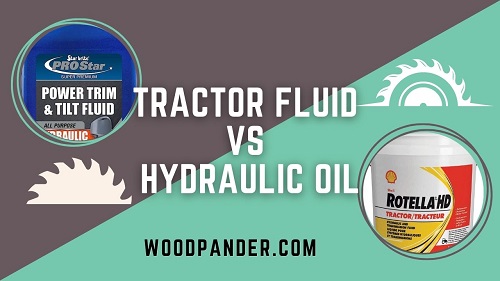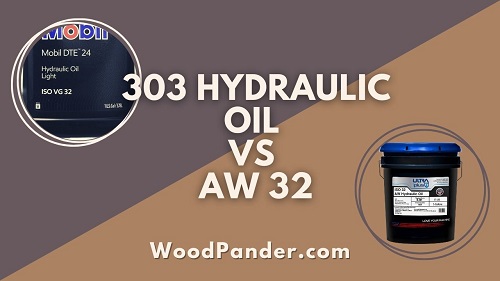When it comes to lubricating and powering hydraulic systems, the choice of oil is crucial.
Two commonly used options are hydraulic oil and mineral oil. While both serve as effective lubricants, they have distinct properties and characteristics that make them suitable for different applications.
In this article, we will explore the differences between hydraulic oil VS mineral oil, helping you understand which one is the best fit for your needs.
Hydraulic oil offers superior performance and protection for demanding hydraulic systems, while mineral oil provides a cost-effective solution for general lubrication needs.
The viscosity and temperature range of hydraulic oil make it suitable for a wide range of operating conditions, whereas mineral oil may struggle in extreme temperatures.
Choosing the right oil depends on factors such as performance requirements, operating conditions, and budget considerations, with hydraulic oil being the preferred choice for high-performance applications.
Is hydraulic fluid mineral oil?
Hydraulic fluid is not necessarily mineral oil, as hydraulic fluid can be formulated using various base oils, including mineral oil, synthetic oil, or a blend of different oils, depending on the specific requirements and performance needs of the hydraulic system.
Understanding Hydraulic Oil
Hydraulic oil is a specially formulated fluid that is designed to transmit power within hydraulic machinery and systems. It acts as a lubricant, coolant, and sealant, ensuring smooth operation and optimal performance of hydraulic components.
Properties and Characteristics
Hydraulic oil exhibits several essential properties that make it ideal for hydraulic systems. It has excellent thermal stability, which allows it to withstand high temperatures without breaking down.
It also possesses good anti-wear properties, protecting critical components from friction and extending their lifespan. Additionally, hydraulic oil has low compressibility, ensuring efficient transfer of power in hydraulic systems.
Applications and Uses
Hydraulic oil finds extensive applications in various industries, including construction, manufacturing, agriculture, and automotive.
It is commonly used in hydraulic systems such as excavators, cranes, loaders, and presses, where reliable power transmission and lubrication are essential.
Understanding Mineral Oil
Mineral oil, also known as base oil, is a general-purpose lubricating oil derived from petroleum. It is obtained through the distillation of crude oil and undergoes minimal refining processes.
Mineral oil is widely used as a lubricant in numerous applications due to its cost-effectiveness and availability.
Properties and Characteristics
Mineral oil possesses moderate lubricating properties, making it suitable for applications that do not require extreme performance or specific additives.
It has a relatively low viscosity compared to hydraulic oil, which affects its flow and lubrication capabilities. However, mineral oil lacks the enhanced properties and specialized additives found in hydraulic oil.
Applications and Uses
Mineral oil is utilized in a wide range of industries and applications, including general machinery, small engines, gearboxes, and some hydraulic systems.
It is commonly employed in situations where cost-effectiveness and general lubrication are the primary requirements.
Hydraulic Oil vs Mineral Oil
| Hydraulic Oil | Mineral Oil | |
|---|---|---|
| Composition | Contains specialized additives | Simpler composition without additives |
| Viscosity | Higher viscosity index | Lower viscosity index |
| Performance | Superior lubrication and wear protection | Moderate lubrication capabilities |
| Thermal Stability | Excellent | Limited |
| Temperature Range | Wide range of temperatures | Limited range |
| Cost | Relatively higher cost | Cost-effective |
| Applications | Hydraulic systems and machinery | General-purpose lubrication |
| Environmental Impact | Varied, depending on the formulation | Typically not biodegradable |
| Manufacturer Recommendations | Often specified for hydraulic systems | May be recommended for general applications |
One of our articles –Tractor Fluid vs Hydraulic Oil.
While both hydraulic oil and mineral oil serve as lubricants, they differ in several key aspects. Let’s explore the significant differences between these two options:
Composition
Hydraulic oil is specifically engineered with additives and inhibitors to enhance its performance in hydraulic systems. These additives provide superior protection against wear, oxidation, corrosion, and foaming.
In contrast, mineral oil has a simpler composition without specialized additives, making it more basic in terms of performance and protection.
Viscosity
Viscosity is a crucial factor in oil selection. Hydraulic oil has a higher viscosity index, which means it maintains its viscosity across a broader range of temperatures.
This characteristic ensures consistent performance and lubrication in various operating conditions.
Mineral oil, on the other hand, has a lower viscosity index, making it less suitable for applications with varying temperature extremes.
Performance
Hydraulic oil offers superior performance compared to mineral oil. Its advanced additives and properties enable better lubrication, reduced friction, and enhanced wear protection.
Hydraulic oil also possesses improved thermal stability, ensuring that it can withstand the high operating temperatures commonly found in hydraulic systems.
Mineral oil, although effective in general applications, may struggle to provide the same level of performance and protection.
Temperature Range
Due to their varied viscosity indexes, hydraulic oil and mineral oil have different temperature ranges in which they operate optimally.
Hydraulic oil can handle a wider temperature range, from low to high temperatures, without sacrificing performance.
Mineral oil, however, may become less effective and may even solidify or lose its lubricating properties in extreme temperature conditions.
Cost
Cost considerations often play a significant role in decision-making. Mineral oil is generally more cost-effective than hydraulic oil due to its simpler composition and lower production costs.
If budget constraints are a significant factor, mineral oil may be a suitable option, especially for applications that don’t demand high-performance lubrication.
One of our articles –What is the Best Hydraulic Oil for a Log Splitter?
Choosing the Right Oil for Your Application
When selecting between hydraulic oil and mineral oil, several factors should be taken into account:
Factors to Consider
Operating Conditions and Temperature Range
Evaluate the operating conditions and temperature extremes your equipment is exposed to. If your application involves wide temperature variations or high operating temperatures, hydraulic oil’s superior performance and broader temperature range may be more suitable.
Required Performance and Lubrication Needs
Consider the level of performance and lubrication your application demands. If you have critical components that require enhanced protection against wear and friction, hydraulic oil’s specialized additives and properties make it the preferred choice.
Equipment Manufacturer Recommendations
Always consult the equipment manufacturer’s guidelines and recommendations. They have extensive knowledge of their products and can provide valuable insights into the most suitable oil for your specific equipment.
Environmental Considerations
Take into account any environmental regulations and sustainability requirements for your application. Some applications may require the use of biodegradable hydraulic oil to minimize ecological impact. Assess the potential risks and legal requirements related to oil disposal and leakage prevention.
Budgetary Constraints
Consider your budgetary constraints when selecting an oil. If cost-effectiveness is a significant factor and your application doesn’t require advanced performance, mineral oil may be a viable option.
By carefully considering these factors and consulting with experts, you can make an informed decision when choosing the right oil for your application.
Remember, proper lubrication is essential for the smooth operation and longevity of your equipment. Follow the manufacturer’s recommendations, conduct regular maintenance, and monitor the oil’s condition to ensure optimal performance.
If you’re still uncertain about the best oil choice, reach out to industry professionals who can provide personalized guidance based on their expertise and experience.
Choose wisely and keep your hydraulic system running smoothly for years to come.
Best Practices for Hydraulic Oil Maintenance
| Regular Oil Analysis | Proper Storage and Handling | Routine Maintenance and Filtration | |
|---|---|---|---|
| Importance | Detects issues early | Prevents contamination | Ensures system cleanliness |
| Procedure | Periodic oil sampling and testing | Clean, dry, temperature-controlled environment | Regular inspections, filter replacements |
| Benefits | Identifies contamination, degradation, and potential issues | Prevents moisture and dirt ingress | Extends oil and system lifespan |
| Actionable Insights | Address oil quality, contamination, and component wear | Protects against oxidation and degradation | Identifies leaks and component wear |
| Implementation | Follow recommended analysis frequency and protocols | Use proper storage containers and seals | Follow manufacturer’s maintenance schedule |
| Equipment Performance | Optimizes system performance and reliability | Maintains oil properties and lubrication effectiveness | Reduces downtime and component failures |
Proper maintenance of hydraulic oil is crucial for optimal system performance and longevity. Follow these best practices:
Regular Oil Analysis
Periodically analyze the condition of the hydraulic oil through oil sampling and testing. Oil analysis helps detect contamination, degradation, and other issues that can affect the performance of the oil and the system.
Address any problems promptly to prevent damage and ensure reliable operation.
Proper Storage and Handling
Store hydraulic oil in a clean, dry, and temperature-controlled environment. Avoid exposure to direct sunlight, extreme temperatures, and moisture.
Always seal containers tightly to prevent contamination. Follow proper handling procedures during oil changes and avoid introducing contaminants into the system.
Routine Maintenance and Filtration
Regularly inspect hydraulic systems for leaks, wear, and other potential issues. Implement a routine maintenance schedule to replace filters, clean components, and address any signs of degradation or contamination.
Effective filtration systems play a crucial role in maintaining the cleanliness and performance of the hydraulic oil.
One of our articles – Can You Mix Different Grades Of Hydraulic Oil?
Related Questions
Is mineral oil same as hydraulic oil?
No, mineral oil and hydraulic oil are not the same; they have different compositions and properties.
Can mineral oil be used as hydraulic fluid?
Yes, mineral oil can be used as a hydraulic fluid in certain applications, but it may not provide the same level of performance as specialized hydraulic oil.
Can I use hydraulic oil instead of mineral oil in my system?
It is essential to follow the manufacturer’s recommendations regarding the type of oil to use in your hydraulic system. Using hydraulic oil instead of mineral oil or vice versa may affect the system’s performance, warranty, and longevity.
What are the risks of using the wrong type of oil in a hydraulic system?
Using the wrong type of oil can lead to decreased lubrication, increased friction, wear and tear, reduced system performance, and potential damage to critical components. It is crucial to use the recommended oil to ensure optimal operation.
Can hydraulic oil and mineral oil be mixed together?
It is generally not recommended to mix hydraulic oil and mineral oil together. Mixing different oils can lead to compatibility issues, decreased performance, and potential damage to the hydraulic system. Always use the appropriate oil as specified by the manufacturer.
Is hydraulic oil more expensive than mineral oil?
Hydraulic oil is typically more expensive than mineral oil due to its advanced additives, specialized properties, and higher performance. However, the cost difference may vary depending on specific brands, grades, and quantities.
How often should hydraulic oil be changed?
The frequency of hydraulic oil changes depends on various factors, including operating conditions, system usage, and manufacturer recommendations. Regular oil analysis and routine maintenance can help determine the optimal oil change intervals for your specific application.
Conclusion
Choosing the right oil for your hydraulic system is vital for its efficient operation and longevity.
While both hydraulic oil and mineral oil serve as lubricants, they have distinct properties and characteristics that make them suitable for different applications.
Hydraulic oil offers advanced performance, superior protection, and wider operating temperature ranges, making it ideal for demanding hydraulic systems.
Mineral oil, on the other hand, provides a more cost-effective solution for general lubrication needs.
Consider the specific requirements of your application, follow equipment manufacturer guidelines, and consult with experts to make an informed decision.








